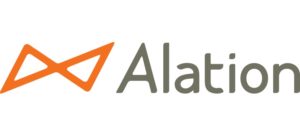
Alation Springs Into Data Governance

(TierneyMJ/Shutterstock)
Alation is best known as a data catalog company. But due to heavy demand from its data catalog customers, Alation today launched a data governance tool to help them better manage and govern their data. When paired with the data catalog from Alation (or even from others), the Data Governance App gives enforcement teeth to data access policies.
Alation is largely credited with inventing the data catalog as a product category unto itself. And it has been quite successful in selling and supporting the catalog, as evidenced by analyst reports and low churn rates. Alation CEO and co-founder Satyen Sangani understandably doesn’t want to upset this apple cart by overreaching and trying to do too much.
But the steady stream of requests from Alation customers for a data governance capability eventually became too much to bear. The requests for data governance started a couple of years, Sangani says.
“Basically, what customers had said to us was you have an inventory of all of our data. The people consuming the data want to be able to understand everything they need to know about the data,” Sangani says. “Having appropriately governed data at the point of consumption is really important. Therefore, can you guys please do governance?”
It made sense on other levels too, Sangani tells Datanami.
“Many Alation customers were already performing data governance and data stewardships tasks within the Alation data catalog,” Sangani says. “Things like asserting data quality, documenting datasets, tagging data–all of those use cases are basically happening within the catalog already and so can you please extend this so that governance sits on top of it?”
The third straw revolved around personas and feature creep. As a catalog, Alation is used on a daily basis by data analysts, product managers–all the folks who need to find and access data assets distributed across the enterprise. While the catalog was gaining data governance tasks, it became clear that some of the higher-level data governance tasks were better handled outside the catalog by a different group of users.
“We’re building so much capability inside of catalog that what we’re finding is that there are different buying audiences,” Sangani says. “We felt like we didn’t want to sell them the entire bundle of stuff every time that they showed up at our door.”
That doesn’t mean that Alation is pulling data governance capabilities out of the catalog. Nothing has been removed from the catalog, Sangani says. Instead, the new Data Governance App adds three main capabilities that augment the catalog.
For starters, it includes a centralized policy center where users can define what data access policies they want to enforce. These controls are then enforced through the catalog (as well as through Snowflake via a special connector also released today).
Secondly, it includes a new change management workflow that provides a repeatable process for subject matter experts to review and approve catalog changes. It works a bit like a ticketing system, Sangani says.
And lastly, Data Governance App brings new data governance dashboards that allow users to monitor and measure progress in their data governance regimes as they roll them out across the enterprise.
The new software helps organizations enforce data access and use policies as they’re going about their daily business in the data catalog. As Sangani tells it, it’s about making the rules of the road apparent to users who might not otherwise know the rules exist.
“It’s almost as if the DMV came out and published a manual, and at that point most people in data governance thought their job is done,” he says. “And what we’re saying is, yeah, you might want to put few stop signs and stop lights. You might want to put up a few lane markers, because people aren’t going to read the manual while they’re driving. They probably shouldn’t do that. And most people don’t. And that’s why most of these [data governance] initiative fails.”
Alation and Snowflake also announced that they’re the first companies to achieve the new Cloud Data Management Capabilities (CDMC) standard. The CDMC standard is sponsored by the EDM Council and verified by KPMG. As part of that process, the Alation catalog and governance applications, when combined with the Snowflake Data Cloud, have proven adherence to the 14 key controls and automation that define management practices for sensitive data in the cloud under CDMC.
“Alation’s integration with Snowflake will help financial services customers accelerate their move to the cloud. And Alation’s Data Governance App accelerates compliance with emerging CDMC standards,” said Matt Glickman, a vice president with Snowflake. “This is invaluable because it connects enterprise data policies to create end-to-end transparency and auditability for data.”
Will there be additional data management tools–or more components to fill out a data mesh, a data fabric, or a data intelligence architecture–coming from Alation? Sangani hinted at the wide array of possible routes that lie before the Redwood City, California company, which has around 300 customers and was recently valued at $1.2 billion.
“I think this idea of the catalog being a platform is the one that you should sort of key in,” he says. “So what does that mean? I think to prove that you’re a platform, you have to have multiple first-party experiences, multiple third-party experiences. And you should expect to see investment in APIs, SDKs and the ability to have a lot more abstraction within the platform, and so you should expect to see a lot of directional announcements in those domains.”
Related Items:
Data Fabrics Emerge to Soothe Cloud Data Management Nightmares
Alation Adds $110M to Its Catalog





























